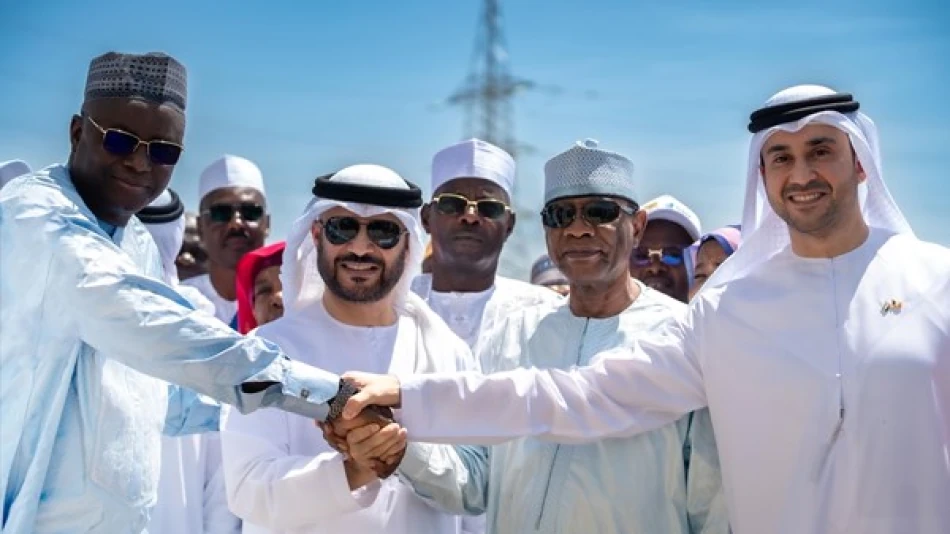
Emirati Firm Electrifies Over 250,000 Chadian Homes with Clean Energy Solutions
A UAE energy company has launched Chad's largest solar power plant, bringing electricity to 274,000 homes in a country where most people still lack reliable power. The 50-megawatt "Nour Chad" facility in the capital N'Djamena marks a significant shift for one of Africa's least electrified nations.
Global South Utilities, owned by Abu Dhabi's Resources Investment, officially opened the solar plant today with senior Chadian government officials present. The project combines solar panels with battery storage systems and represents the first utility-scale renewable energy project in Chad.
The timing matters for Chad's economy. The landlocked nation has relied heavily on expensive imported diesel fuel for power generation, creating budget pressures and supply chain vulnerabilities. This solar facility offers a more stable and cost-effective alternative that could free up government resources for other development priorities.
The plant includes 81,000 solar panels and 158 electrical inverters, plus a 5-megawatt battery storage system to provide power when the sun isn't shining. Over its operational lifetime, the facility is expected to prevent 1.36 million tons of carbon dioxide emissions.
For investors and energy companies, Chad represents the kind of frontier market where solar power makes immediate economic sense. Many African countries still generate electricity primarily from diesel, making solar competitive even without subsidies. The UAE company completed this project from contract signing to operation in what it calls "record time," though specific timelines weren't disclosed.
Ali Al Shamri, CEO of Global South Utilities, said this is the company's first complete project in Africa from start to finish. The success could open doors for similar investments across the continent, where energy demand is growing faster than grid capacity.
The project required over 350,000 safe working hours to complete and will be operated by the UAE company rather than simply built and handed over. This operational commitment suggests confidence in Chad's regulatory environment and payment systems - key concerns for international energy investors in emerging markets.
Chad's government sees this as a template for future renewable energy projects. The country has abundant solar resources but has lacked the capital and technical expertise to develop them at scale. UAE involvement brings both financing capability and operational experience from similar projects across the Middle East and Africa.
Most Viewed News

 Layla Al Mansoori
Layla Al Mansoori






